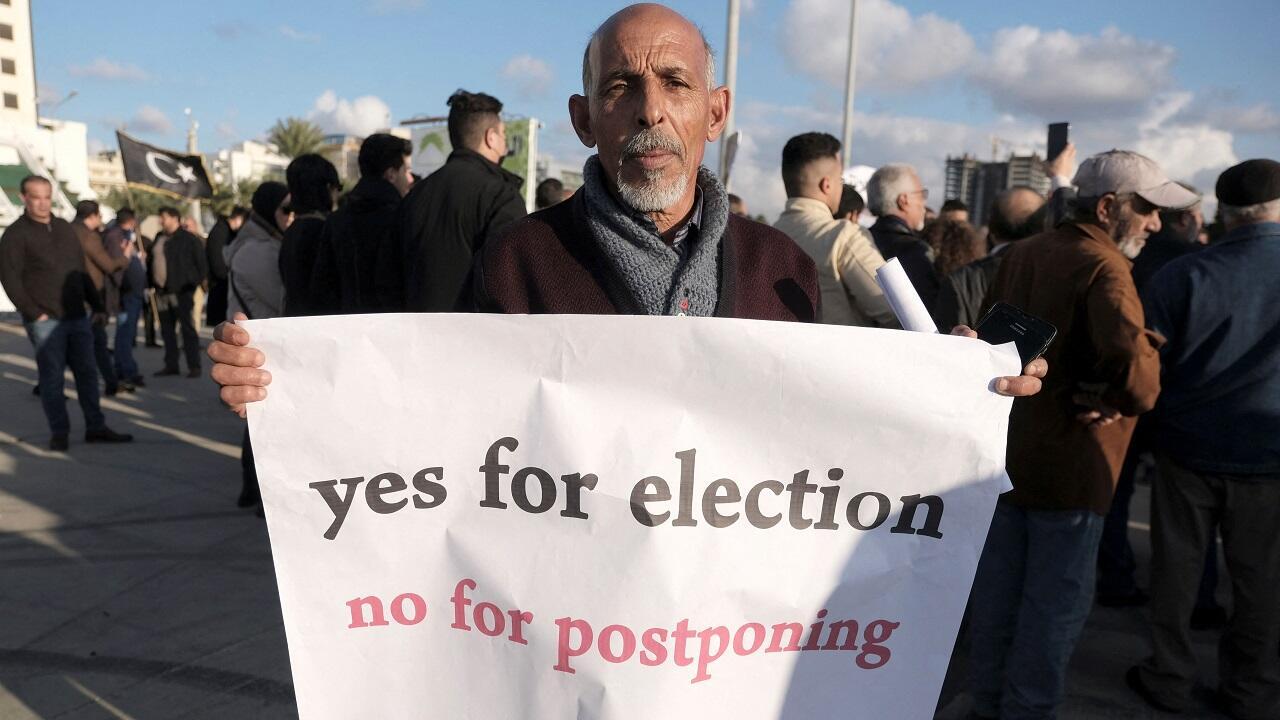With two rival prime ministers, Libya faces a new puzzle
A Libyan protesting for the maintenance of the elections in Libya, during a demonstration in Benghazi, December 24, 2021. REUTERS - ESAM OMRAN AL-FETORI
Text by: RFI Follow
2 mins
New phase of uncertainty for Libya, which finds itself since Thursday, after a controversial vote in Parliament, with two rival Prime Ministers.
Advertising
Read more
The Tobruk parliament
swore in ex-interior minister
Fathi Bachagha following a political agreement between various factions and militias, including Khalifa Haftar's eastern forces.
But at the same time, the outgoing head of government, Abdel Hamid Dbeibah, whose mandate expired because he was unable to organize the elections, does not seem determined to step aside.
For analyst Jalel Harchaoui, Libya expert at the NGO Global Initiative Against Transnational Organized Crime, there are many unknowns in this situation.
Starting with knowing if “
Bachagha will be able to form a cabinet in the next two weeks?
Will it come up with believable names?
Many parameters are still unknown, parameters that the actors themselves do not know.
»
The only certain thing, "
is that Dbeibah's vacation period is over
," said the researcher, interviewed by
François Mazet
of RFI's Africa service.
Anticipating this vote by Parliament, Dbeibah has made it known on several occasions that he would only cede power to a government that emerged from the ballot box.
“
He can hang on, it will be much more painful, he will be weakened.
Staying a few more months will be very difficult, but we must not forget that he has the Central Bank on his side, it is control of the piggy banks, he can close certain floodgates.
We now really have to find viable arrangements.
And it's not necessarily a puzzle that has a solution.
»
The UN continues to support Dbeibah
In the meantime, Abdel Hamid Dbeibah still enjoys the support of the UN.
The spokesman for the international organization Stéphane Dujarric explained, shortly after the announcement of the election of Fathi Bachagha as the new Prime Minister, that the position of the institution “
remains unchanged
”.
Jalel Harchaoui explains that this support is logical “
because the UN is keen on elections
”.
“
The spearhead of UN diplomacy for two years has been to hold elections,
” continues the analyst.
Parliament - which voted orally and not in due form - has long expired.
The elections were in July 2014, so almost eight years ago.
If the UN lies down in front of Parliament, it means accepting that there are no elections.
So they are obliged, to save the idea of elections, to say "
what you have done has nothing to do with the schmilblick and we stay with Dbeibah and we will start to be more conciliatory in our language, we UN, only if we see elections in the near future. We must not lose sight of this objective
".
»
This Friday, UN Secretary General Antonio Guterres urged "
all parties to continue to preserve stability in Libya as an absolute priority
" and reminded them of "
the primary objective of holding national elections in the as soon as possible
".
Newsletter
Receive all the international news directly in your mailbox
I subscribe
Follow all the international news by downloading the RFI application
google-play-badge_FR
Libya

